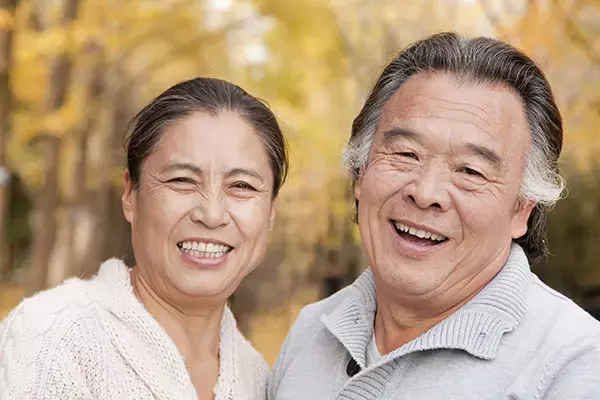- Home
- Medical news & Guidelines
- Anesthesiology
- Cardiology and CTVS
- Critical Care
- Dentistry
- Dermatology
- Diabetes and Endocrinology
- ENT
- Gastroenterology
- Medicine
- Nephrology
- Neurology
- Obstretics-Gynaecology
- Oncology
- Ophthalmology
- Orthopaedics
- Pediatrics-Neonatology
- Psychiatry
- Pulmonology
- Radiology
- Surgery
- Urology
- Laboratory Medicine
- Diet
- Nursing
- Paramedical
- Physiotherapy
- Health news
- Fact Check
- Bone Health Fact Check
- Brain Health Fact Check
- Cancer Related Fact Check
- Child Care Fact Check
- Dental and oral health fact check
- Diabetes and metabolic health fact check
- Diet and Nutrition Fact Check
- Eye and ENT Care Fact Check
- Fitness fact check
- Gut health fact check
- Heart health fact check
- Kidney health fact check
- Medical education fact check
- Men's health fact check
- Respiratory fact check
- Skin and hair care fact check
- Vaccine and Immunization fact check
- Women's health fact check
- AYUSH
- State News
- Andaman and Nicobar Islands
- Andhra Pradesh
- Arunachal Pradesh
- Assam
- Bihar
- Chandigarh
- Chattisgarh
- Dadra and Nagar Haveli
- Daman and Diu
- Delhi
- Goa
- Gujarat
- Haryana
- Himachal Pradesh
- Jammu & Kashmir
- Jharkhand
- Karnataka
- Kerala
- Ladakh
- Lakshadweep
- Madhya Pradesh
- Maharashtra
- Manipur
- Meghalaya
- Mizoram
- Nagaland
- Odisha
- Puducherry
- Punjab
- Rajasthan
- Sikkim
- Tamil Nadu
- Telangana
- Tripura
- Uttar Pradesh
- Uttrakhand
- West Bengal
- Medical Education
- Industry
New chewing function questionnaire may help assess oral function rehabilitation: study

New unidimensional chewing function questionnaire may be a valid and reliable tool for dentists to assess oral function rehabilitation, according to a recent study published in the Journal of Dentistry.
A study was conducted to develop and validate a questionnaire for assessing chewing function of Chinese older adults. The chewing function questionnaire was validated on older adults recruited from a dental hospital, an elderly home and three community centers in Hong Kong. The participants were asked to indicate their ability to chew on each of the 20 selected food items and to self-rate their overall chewing ability. Chewing function was objectively assessed by asking the participant to chew a color-changeable gum for 90 s. The color of the chewed gum was assessed using a colorimeter. Participant's maximum bite force was also measured by an electronic detector.
The Results of the study are as follows:
A total of 211 elders participated in this study. Ten out of the 20 food items were selected to create the final unidimensional chewing function questionnaire (CFQ). The overall Cronbach's alpha value for the CFQ was 0.912. The weighted kappa value of each food item ranged from 0.6 to 1. In general, participants with larger color change of the chewed gum had significantly higher median rank of the CFQ total score and of the score of each food item (p < 0.01). The CFQ total score was correlated with the color change of the chewed gum as measured by colorimeter (p < 0.001), the maximum bite force (p < 0.001) and self-rated chewing ability (p < 0.001).
Thus, the researchers concluded that the new unidimensional chewing function questionnaire is a valid and reliable questionnaire for assessing self-rated chewing ability of Chinese older adults. This newly developed self-reported questionnaire can be used to assess the chewing function of Chinese older adults and dentists can use the information obtained to discuss with their patients regarding the need for oral function rehabilitation, such as the treatment need for fixed or removable dental prosthesis.
Reference:
Development and validation of a chewing function questionnaire for Chinese older adults Author links open overlay panel by Yanpin Fan et al. published in the Journal of Dentistry.
Dr. Shravani Dali has completed her BDS from Pravara institute of medical sciences, loni. Following which she extensively worked in the healthcare sector for 2+ years. She has been actively involved in writing blogs in field of health and wellness. Currently she is pursuing her Masters of public health-health administration from Tata institute of social sciences. She can be contacted at editorial@medicaldialogues.in.
Dr Kamal Kant Kohli-MBBS, DTCD- a chest specialist with more than 30 years of practice and a flair for writing clinical articles, Dr Kamal Kant Kohli joined Medical Dialogues as a Chief Editor of Medical News. Besides writing articles, as an editor, he proofreads and verifies all the medical content published on Medical Dialogues including those coming from journals, studies,medical conferences,guidelines etc. Email: drkohli@medicaldialogues.in. Contact no. 011-43720751


